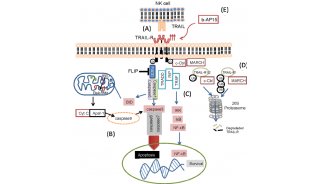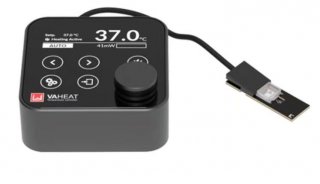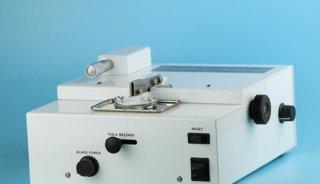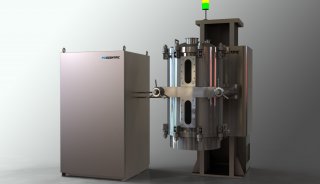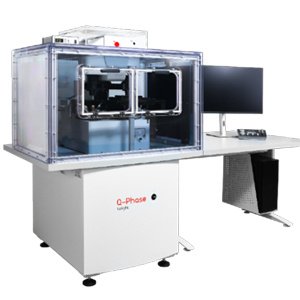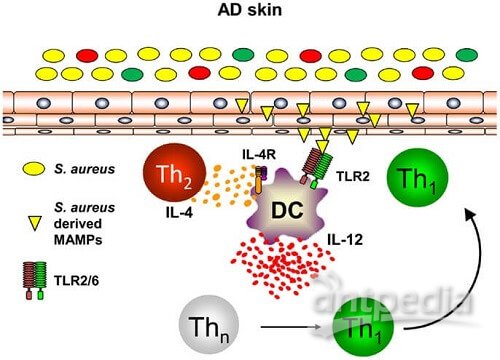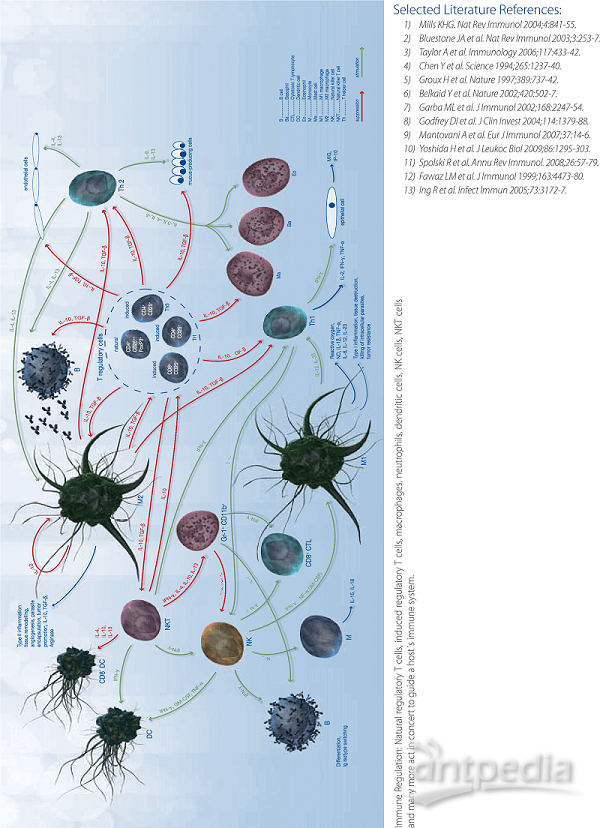Th1/Th2 Differentiation

Helper T cells are found in two distinct cell types, Th1 and Th2, distinguished by the cytokines they produce and respond to and the immune responses they are involved in. Th1 cells produce pro-inflammatory cytokines like IFN-g, TNF-b and IL-2, while Th2 cells produce the cytokines IL-4, IL-5, IL-6 and IL-13. The cytokines produced by Th1 cells stimulate the phagocytosis and destruction of microbial pathogens while Th2 cytokines like IL-4 generally stimulate the production of antibodies directed toward large extracellular parasites (see “IL-4 Signaling Pathway”). IL-5 stimulates eosinophil responses, also part of the immune response toward large extracellular parasites (see “IL-5 Signaling Pathway”) Th1 and Th2 are produced by differentiation from a non-antigen exposed precursor cell type, Thp. Exposure of Thp cells to antigen by antigen-presenting cells may result in their differentiation to Th0 cells, not yet committed to become either Th1 or Th2 cells, although the existence of Th0 cells is controversial. Cells committed as either Th1 and Th2 cells are called polarized, whether they are effector cells actively secreting cytokines or are memory cells. The stimulation of Thp cells by exposure to antigen-presenting cells induces the proliferation of undifferentiated cells, and their expression of IL-2 and IL-2 receptor. The differentiation of Th1 cells and Th2 cells depends on the cytokines they are exposed to. IL-12 causes Th1 differentiation and blocks Th2 cell production (see “IL12 and Stat4 Dependent Signaling Pathway in Th1 Development” pathway), while IL-4 causes Th2 differentiation and antagonizes Th1 development. IL-18 also induces Th1 differentiation (See “IL-18 signaling pathway”). Polarized Th1 and Th2 cells also express distinct sets of chemokine receptors that further modify their homing and other cellular responses (see “Selective expression of chemokine receptors during T-cell polarization” pathway). Improved understanding of Th1 and Th2 differentiation will improve our overall understanding of the immune system, its response to infection and aberrant responses that lead to disease.
Contributor:
REFERENCES:






